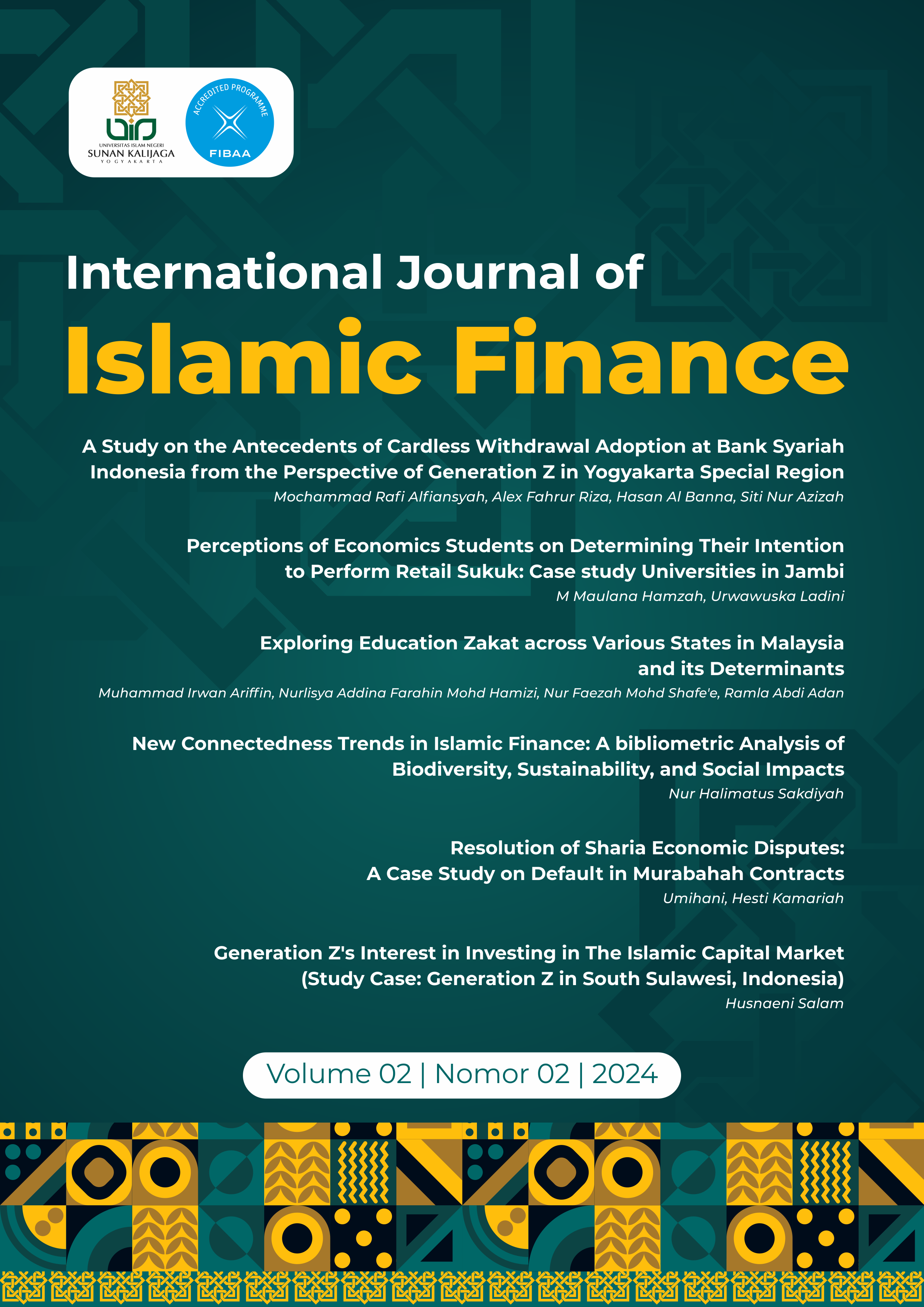Exploring Education Zakat across Various States in Malaysia and its Determinants
DOI:
https://doi.org/10.14421/ijif.v2i2.2312Keywords:
Education Zakat, Zakat Governance, Islamic Social Finance, Zakat Management, Higher Education InstitutionsAbstract
Background: Zakat is an important Islamic financial tool that contributes to socioeconomic development, including education, by redistributing wealth to those in need. In Malaysia, state governments manage zakat collection and distribution, with significant variation across states in how education zakat is handled.
Objectives: This study aims to compare the distribution and impact of education zakat across different Malaysian states, focusing on zakat office in Higher Education Institutions (HEIs) and other factors that influence education zakat effects.
Novelty: This study offers a unique contribution by comparing education zakat across states in Malaysia and examining the determinants that lead to effective education zakat outcomes, with a special focus on zakat office in HEIs.
Research Methodology / Design: A qualitative research methodology is employed, combining library research on zakat practices across states with unstructured interviews from officials at zakat offices in HEIs. The fi sabilillah category is used as the best proxy for education zakat to isolate zakat given due to poverty reasons.
Findings: The results indicate significant disparities in zakat allocation for education across Malaysian states. For instance, Sarawak allocated the highest percentage of zakat for education, while Selangor allocated the lowest. Factors influencing these differences include availability of wide range of zakat schemes, the extension of asnaf categories, and student perceptions of zakat management systems.
Implication: Findings suggest that diverse zakat scheme, broader asnaf categories, and positive perception among students on zakat management in HEIs could enhance the impact of education zakat. States with higher allocation for education zakat has the potential to enjoy improved educational outcomes. Encouraging other states to adopt good practices, including those seen in HEIs, can help enhance the impact of education zakat, leading to more efficient resource allocation and greater educational equity across Malaysia.





